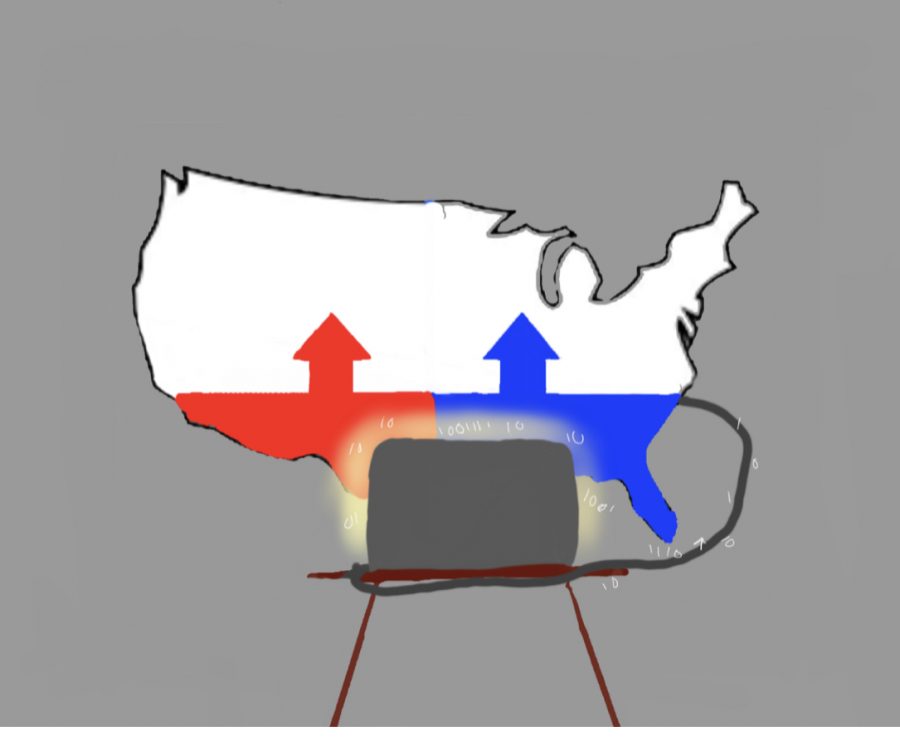Trump’s Claims of Election Fraud Are Far from Truthful.
During the week of Nov. 2, Americans were on the edge of their seats, watching the 2020 presidential election between President Donald Trump and former Vice President Joseph Biden. For me, as well as many others, that week consisted of constantly checking the Associated Press live election results and Twitter, and being wholly unable to focus on anything else.
This election already proved itself to be out of the ordinary. Since going to the polls posed the risk of catching coronavirus, many voters decided to use the mail-in voting option to cast their vote. The voter turnout hit a record high, with the most votes casted in the past 120 years according to the Washington Post. On Nov. 7, four days after Election Day, Biden and Kamala Harris were declared the winners of the presidential race by CNN, soon followed by NBC, MSNBC, and Fox News.
The most significant difference between this election and those of years prior was Trump’s claim that the integrity of the votes was compromised. This occurred both during the counting and after Biden was announced as president-elect. The moment Trump began to fall behind in the ballots, the tweets began to get posted.
Throughout the entirety of the election, rampant misinformation and rumors of election fraud were spread. One popular rumor speculated that votes were counted under the names of deceased citizens in key states. Another claimed that Trump supporters were instructed to use Sharpie so their ballots would not count in one Arizona county. However, these rumors, along with many other claims of voter fraud, have been debunked and shut down by governors, state political leaders, and non-partisan non-profits such as Factcheck.org.
According to the BBC, Michigan authorities called these rumors “misinformation,” stating that dead peoples’ votes were rejected. Arizona Secretary of State Katie Hobbs and Maricopa County Officials clarified in a tweet that ballots cast with Sharpie do not disqualify ballots, contrary to what was believed in the rumor. Additionally, in an interview with the Associated Press, Attorney General William Barr stated, “To date, we have not seen fraud on a scale that could have affected a different outcome in the election.”
On Nov. 8, Trump tweeted, “Since when does the Lamestream Media call who our next president will be? We have all learned a lot in the last two weeks!” Some people have shared similar beliefs, stating that the media does not have the power to call the winner. However, the media does in fact call our presidential elections, and they have done so in every election since 1848. Trump did not have an issue with this when the media declared him the winner in 2016.
Is it in Donald Trump’s legal right to investigate the election? Yes. Is it responsible as the president of the United States, arguably one of the world’s most influential people, to be spreading claims of election fraud? Not really. His baseless claims and tweets have only incited confusion, undermined the people who count votes, and increased the tensions in an already divided America.
Senior Victoria Medina said, “I followed the election very closely, and I was really interested in seeing who was going to win. But after the election, when Trump started to make vote fraud accusations, I got really sick of it. His accusations did more harm than good.”
Senior Faith Koobial shared, “I didn’t follow the election super closely, but I followed it more than I did in 2016. I think I realized how myopic people are when it comes to hearing opposing views, and how some people can take a situation and spin it so far from its reality. In terms of Trump’s claims of election fraud, there are numerous reliable sources that disprove all of his claims, so I think the election was fair.”
As of Dec. 13, Trump has yet to concede. However, it seems as if the Trump administration is preparing to transfer the White House to Biden’s administration. Only time will tell.


















